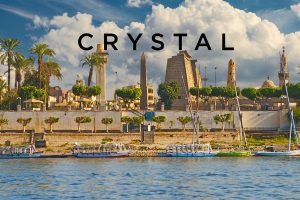Jeddah to Athens Mediterranean Cruise Itinerary
Day1 – Jeddah, Saudi Arabia
As the most historic port in Saudi Arabia, Jeddah is packed full of cultural riches. Apart from being the gateway to Mecca, the city is famous for being the burial place of Eve, the mother of humanity. Although the city today buzzes with modernity, the past is very much present, largely thanks to the UNESCO World Heritage site of Old Jeddah where you can stroll the streets lined with beautiful and traditional 19th century architecture.
Day2 – Day at sea
Day3 – Aqaba (Petra), Jordan
Carved into a rock facade, Petra is an ancient archeological city and UNESCO World Heritage Site located in the southwestern desert of Jordan. Situated at the top of its namesake gulf, Aqaba brings a refreshing release from the rose-colored desert to the north. Its sandy beaches and coral reefs are the most pristine on the Red Sea, and Jordanians hope to preserve them through careful planning. Beyond the modernity of Aqaba itself, the UNESCO treasure of Petra – an ancient rock-carved Nabataean city once lost to the Western world – and the wonders of the Wadi Rum await discovery.
Day4 – Safaga (Luxor), Egypt
Delve into the world of ancient Egypt in Luxor, a treasure trove of historically significant temples, tombs and monuments located on the east bank of the Nile. On the Red Sea coast, this small city offers beautiful beaches and glorious weather, even snorkeling and diving among the offshore reefs. More intriguingly, it serves as the gateway to Luxor on the west bank of the Nile River, where the Valley of the Kings reveals the elaborate tombs and underground mausoleums of pharaohs such as Tutankhamun and Ramses II.
Day5 – Day at Sea
Day6 – Suez Canal Transit, Egypt
The Suez Canal is a manmade waterway created to connect the Red Sea with the Mediterranean Sea. Located in Egypt, the canal was inaugurated in 1869 and has become an important maritime passage.
Day7 – Alexandria, Egypt
There are few cities on earth as steeped in history as Alexandria, the city heaves with echoes of ancient greatness. The Great Library, one of the most famous centers of learning in antiquity, symbolizes its intellectual legacy, and, although the original library is no more, the modern Bibliotheca Alexandrina pays homage to this heritage with its stunning architecture and wealth of knowledge. Today the city founded by Alexander the Great in 331 BCE is a vibrant metropolis and nexus of civilizations, offering a both visitors and locals a kaleidoscope of experiences. Head to the Alexandria’s shoreline, adorned with historic forts and picturesque beaches, evokes both romance and history. The Citadel of Qaitbay, a medieval fortress on the Mediterranean’s edge, was built in the place of the city’s famous lighthouse (one of the original Seven Wonders of the World) stands as a testament to Egypt’s maritime past. Stroll along the waterfront, aka the Corniche and you’ll find charming cafes, restaurants, and ice cream parlors that invite you to enjoy some of the local delicacies, or pop into the bustling streets of the Souk el-Attarine market for full immersion into local life.
Day8 – Day at sea
Day9 – Piraeus (Athens), Greece
Experience the vibrant and historic port of Piraeus, Athens gateway to the Aegean islands and beyond, and find a rich maritime heritage, a bustling local culture, and access to the wonders of Athens. Venture through Greece’s largest port city, Piraeus, as you make your way to the cradle of Western culture and the birthplace of democracy. Athens, among the world’s oldest cities with a history spanning 3,400 years, has long been the location of myth and muse, and its ancient heritage is still an incredible source of inspiration. Here, the Acropolis crowns the city as home to the Parthenon and other legendary temples and monuments.

